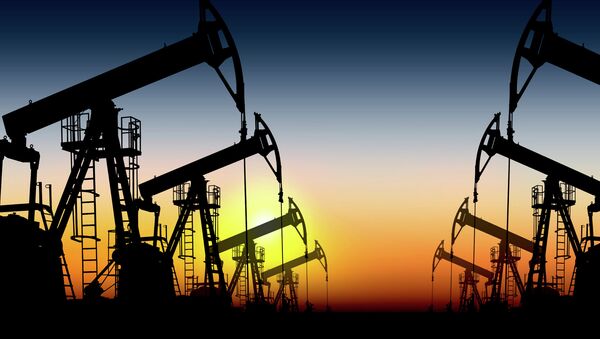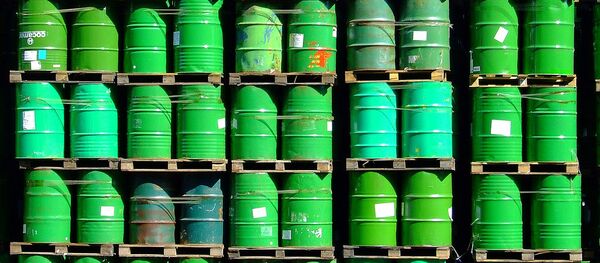MOSCOW (Sputnik), Svetlana Alexandrova — Despite pressure from Organization of the Petroleum Exporting Countries (OPEC) members, is unlikely to scale back on its oil production, aiming to seize a market share from its competitors, US experts told Sputnik.
Oil producing states are coming under severe economic pressure due to critically low oil prices, dropping to $40 per barrel, while Saudi Arabia continues to expand its oil output. In November, the Kingdom unilaterally increased its production to more than 10.6 million barrels per day.
Saudi Arabia seems to be looking ahead and is unlikely to cut its oil production levels in the near future, Energy and Middle East Scholar at the University of Oxford Justin Dargin told Sputnik explaining that, "Saudis have a vested interest to seize market share from its competitors, furthermore, the Kingdom is willing to undercut Iran’s ability to finance its political ambitions."
Iran is now emerging as a major economic rival to Saudi Arabia in the region. The Saudis are concerned that once the sanctions against Iran are lifted, Iran will see major investment flow into its energy sector, Dargin stated.
Iran has clearly indicated that it is open for business, and will attempt to restore its production as soon possible. "With major Western investment and technology brought to bear, Iran may be able to increase production by approximately one million barrels within a year", Dargin stated.
Both experts expect that Iran will try to sell as much of its stored oil as quickly as possible even if it means engaging in a price war.
"Oil at $50 a barrel is still expensive by historical inflation corrected standards, but should be cheap enough to allow some recovery," Arthur Berman asserted when asked if low oil prices are economically justified and not part of the political game.
Dargin, in his turn, believes that the decision not to scale back production in the face of oversupply and a weak oil price is a political decision, stressing that "the 'game' of politics is never far from the barrel of oil."
Global oil prices have dropped significantly compared to summer 2014 levels, falling from $100 to $43 per barrel for Brent crude. OPEC's next scheduled gathering is due to take place in December but Algeria, Venezuela, Iran and a number of other countries have insisted on an earlier, emergency OPEC meeting.




